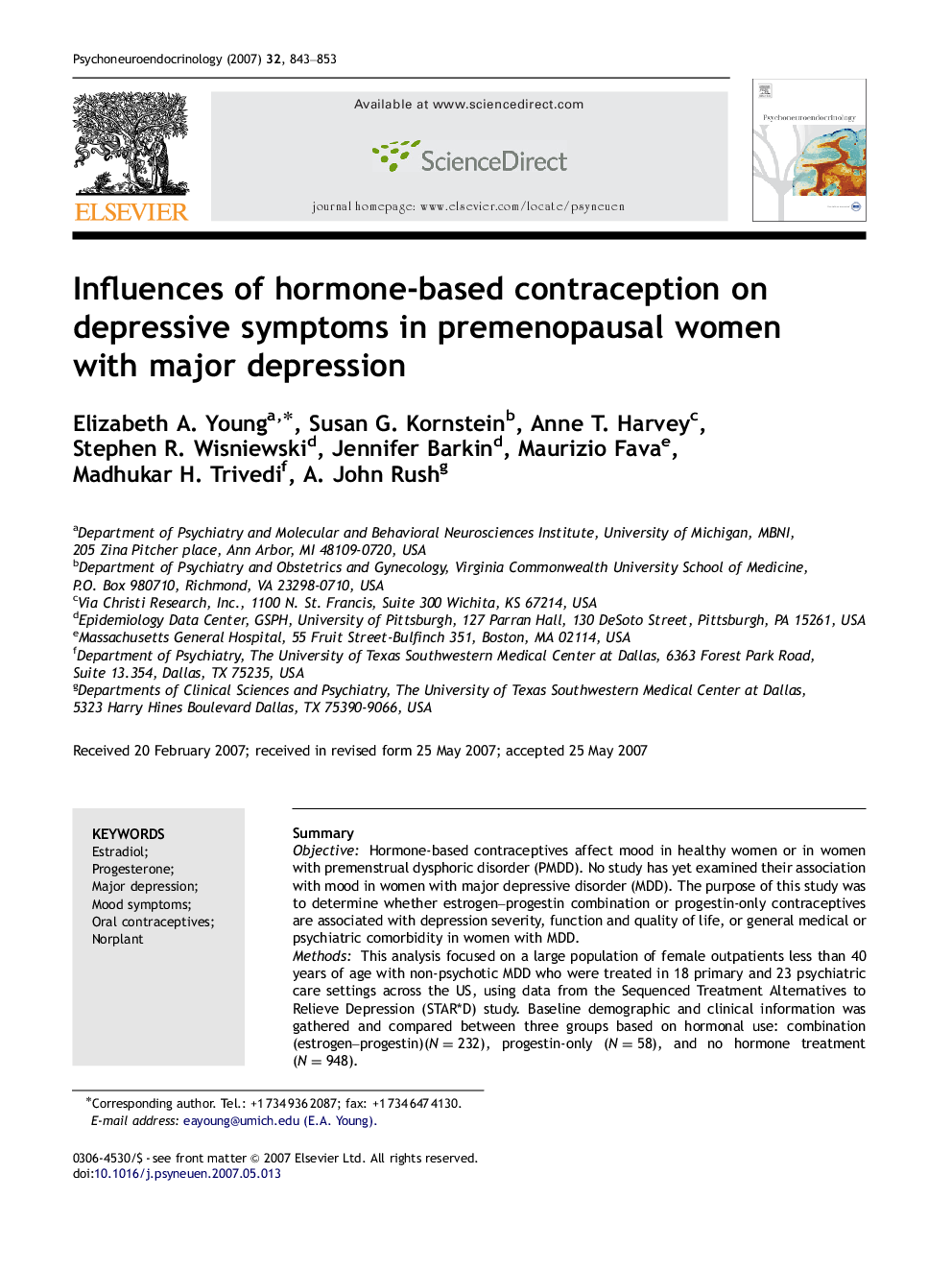| Article ID | Journal | Published Year | Pages | File Type |
|---|---|---|---|---|
| 336423 | Psychoneuroendocrinology | 2007 | 11 Pages |
SummaryObjectiveHormone-based contraceptives affect mood in healthy women or in women with premenstrual dysphoric disorder (PMDD). No study has yet examined their association with mood in women with major depressive disorder (MDD). The purpose of this study was to determine whether estrogen–progestin combination or progestin-only contraceptives are associated with depression severity, function and quality of life, or general medical or psychiatric comorbidity in women with MDD.MethodsThis analysis focused on a large population of female outpatients less than 40 years of age with non-psychotic MDD who were treated in 18 primary and 23 psychiatric care settings across the US, using data from the Sequenced Treatment Alternatives to Relieve Depression (STAR*D) study. Baseline demographic and clinical information was gathered and compared between three groups based on hormonal use: combination (estrogen–progestin)(N=232), progestin-only (N=58), and no hormone treatment (N=948).ResultsCaucasians were significantly more likely to use combined hormone contraception. Women on progestin-only had significantly more general medical comorbidities; greater hypersomnia, weight gain and gastrointestinal symptoms; and worse physical functioning than women in either of the other groups. Those on combined hormone contraception were significantly less depressed than those with no hormone treatment by the 16-item Quick Inventory of Depressive Symptomatology—Self-Rated. The combined hormone group also demonstrated better physical functioning and less obsessive-compulsive disorder (COCD) comorbidity than either of the other groups.ConclusionsSynthetic estrogen and progestins may influence depressive and physical symptoms in depressed women.
